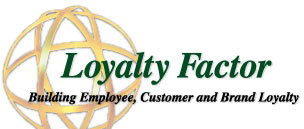A survey of 350 executives across 14 industries, 68% confirmed their companies experienced unanticipated problems in their change process. – International Consortium of Executive Development Research.
360 Assessments
Many companies utilize 360-degree feedback, a process touted for boosting productivity by giving workers a more accurate sense of their personal strengths and weaknesses and effectively identifying true competencies. If administered regularly these assessments are also a useful tool for evaluating the effects of training and other development programs and can be used to target training towards the specific needs/developmental areas of an organization or group.
Loyalty Factor works with clients to customize and implement a 360-degree feedback process within their organization. This includes developing the list of skills and competencies to be included in the survey, designing questions to assess those skills, determining the implementation process and administering the assessment. Assessments can be administered on the web or via diskette based upon the company's needs.
At the end of the assessment process, each individual receives a report that includes:
- The mean (average) of all responses to each item and the distribution of the responses among all rankings (i.e., the number of respondents at each ranking);
- A comparison of self-assessment with others' assessments;
- A comparison (i.e., gap analysis) between performance and importance of each item;
- Verbatim narrative comments included by respondents.
- Personal development planning and journal pages.
In addition, Loyalty Factor provides clients with organizational summary data including:
- Evaluation of trends and patterns among participants at various levels or in specific areas of the organization



